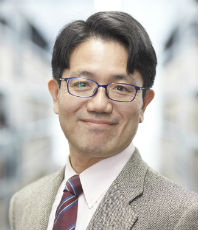 Dean Kenji SUZUKI
Dean Kenji SUZUKI
In 2008, the School of Global Japanese Studies started at Meiji University. Nonetheless, we are still often asked which is the major of our School - “Global studies” or “Japanese studies”. In fact, our name reflects a unique framework of university education which is proposed and achieved by this School.
The aim of this School is to develop the competence to understand the advantages of Japan from global perspectives to deliver them to the world, as well as the competence to understand the global circumstances from Japanese perspectives to draw implications to Japan. In other words, we aim to develop the competence to connect Japan and the world – both from Japan to the world and from the world to Japan – with spirit of challenge for various frontiers.
Of course, there are thousands of ways to connect Japan and the world. If you are interested in inbound tourism to Japan, for instance, you can study not only tourism management, but also Japanese pop culture, so that you can make attractive tour plans for those interested in Japan being motivated by anime and manga. If you would like to help support developing countries in Africa, you can study not only the geography of Africa, but also train your skill of teaching Japanese, so that you can motivate African children to be interested in Japan in the future. If you think of teaching English in Japan, you can study not only the methods of teaching English but also the world’s cultural diversity and multicultural societies with a view to becoming a teacher to help children develop wider perspectives through English education.
Rather than developing specialty in a particular field by following the fixed curriculum, you must consider how you want to connect Japan and the world, and study what you think is necessary for that purpose. You can choose courses from various fields to study in interdisciplinary and multiple manners. Your study plan may also include the development of practical communication skills of English, as well as study abroad, internship and volunteering, long-term or short-term.
That is like a painting. Instead of putting colors randomly to the canvas just to acquire knowledge, you must choose colors you use, combine some colors to create new colors, and paint your own picture with those colors to achieve your own goal.
We believe that such a spontaneous learning gives you a great opportunity to develop enough to compete even under dramatic social changes by further globalization and advent of artificial intelligence.
School of Global Japanese Studies
Dean Kenji SUZUKI


